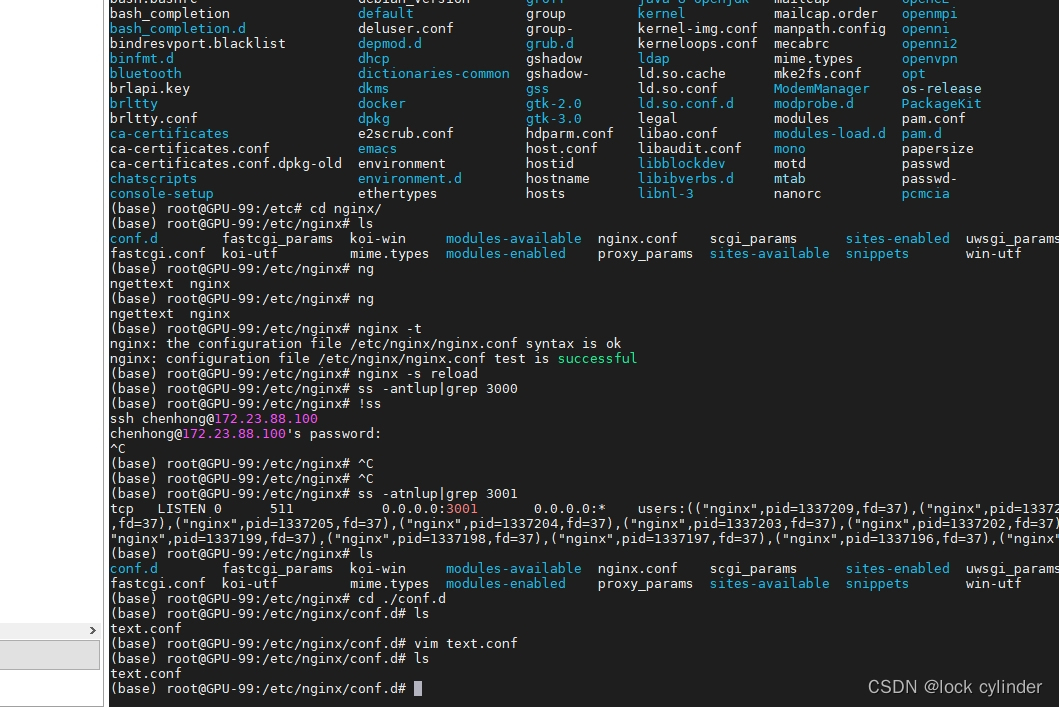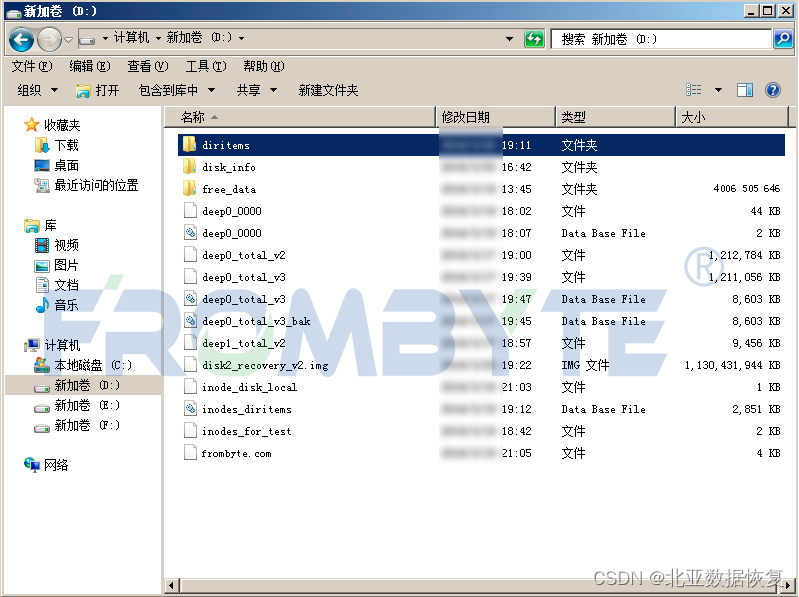一.创建项目
创建
1.npm install -g @vue/cli
vue create vision
2.
3.
4.版本
5.是否使用历史路由
6.CSS预处理
7.ES标准配置
8.啥时候es标准提示-保存文件后
9.将配置文件放入单独文件中处理
10.需要保留新建项目以上设置
11.选择“Use PNPM”或者“Use NPM”
12.创建
13访问
删除无用项目代码
1.App.vue
2.
静态资源引入
项目的基本配置
const { defineConfig } = require('@vue/cli-service')
module.exports = defineConfig({
transpileDependencies: true
})
module.exports = {
devServer: {
port: 8888,
open: true
}
}
全局Echarts对象挂载
1.
2.
// 将全局的echarts对象挂载到vue的原型对象上
// 别的组件使用 this.$echarts
Vue.prototype.$echarts = window.echarts
axios的封装与挂载
1.npm install axios
2.调用
// eslint-disable-next-line no-unused-vars import axios from 'axios' // 请求基准路径的配置 axios.defaults.baseURL = 'http://127.0.0.1:8888/api' // 将axios挂载到vue的原型对象上 // 在别的组件 this.$http Vue.prototype.$http = axios
二.单独图表组件开发
模板
V1
商家销售统计(横向柱状图)
1.组件结构的设计
1.1创建SellerPage.vue
1.2Seller.vue 呈现图表组件
1.3router 注入SellerPage文件,路由设置;
import Vue from 'vue'
import VueRouter from 'vue-router'
import SellerPage from '@/views/SellerPage.vue'
Vue.use(VueRouter)
const routes = [
{
path: '/sellerpage',
component: SellerPage
}
]
const router = new VueRouter({
routes
})
export default router
1.4app.vue 声明路由占位符
1.5访问sellerpage.vue内容
1.6通过sellerpage文件访问seller文件
2.布局结构的设计
2.1seller文件设置样式
2.2sellerpage文件设置样式
2.3在asset中编写css文件
html,body,#app {
width: 100%;
height: 100%;
padding: 0;
margin: 0;
overflow: hidden;
}
.com-page{
width: 100%;
height: 100%;
overflow: hidden;
}
.com-container{
width: 100%;
height: 100%;
overflow: hidden;
}
.com-chart{
width: 100%;
height: 100%;
overflow: hidden;
}
3.4在main.js引入全局样式
// 引入全局的样式文件 import './assets/css/global.less'
3.5查看
3.图表基本功能的实现
3.1initChart 初始化echartsinstance对象
3.2getData获取数据
3.2.1获取数据
3.2.2提取data数据
async getData () {
// http://127.0.0.1:8888/api/seller
const { data: ret } = await this.$http.get('seller')
console.log(ret)
},
3.3updateChart跟新图表显示
4.动态刷新的实现
4.1数据处理
4.1.1数据从小到大排序
4.1.2每五个元素一页
-
currentPage 第几页
-
totaPage 总共几页
4.2启动和停止的时机
4.2.1获取数据之后
-
启动定时器
-
关闭定时器
4.2.2鼠标移出图表时启动定时器
4.3边界值的处理
5.UI调整
5.1主题使用
<%= htmlWebpackPlugin.options.title %> 5.2图表的圆角
html,body,#app { width: 100%; height: 100%; padding: 0; margin: 0; overflow: hidden; } .com-page{ width: 100%; height: 100%; overflow: hidden; } .com-container{ width: 100%; height: 100%; overflow: hidden; } .com-chart{ width: 100%; height: 100%; overflow: hidden; } //图表圆角 canvas { border-radius: 20px; }5.3图表的标题
title: { text: '▎商家销售统计', textStyle: { fontSize: 66 },5.4坐标轴的位置
grid: { top: '20%', left: '3%', right: '6%', bottom: '3%', containLabel: true // 距离是包含坐标轴上的文字 },5.5柱状图条目
- 宽度
series: [ { type: 'bar', data: sellerValue, barWidth: 66 } ]-
文字
label: { show: true, position: 'right', textStyle: { color: 'white' } }-
右边圆角
itemStyle: { barBorderRadius: [0, 33, 33, 0] }-
颜色渐变
// 指明颜色渐变的方向 // 指明不同百分比之下颜色的值 color: new this.$echarts.graphic.LinearGradient(0, 0, 1, 0, [ // 百分之0状态之下的颜色值 { offset: 0, color: '#5052EE' }, // 百分之100状态之下的颜色值 { offset: 1, color: '#AB6EE5' } ])-
背景
tooltip: { trigger: 'axis', // 鼠标移动坐标轴触发 axisPointer: { // 触发的样式 type: 'line', // 类型 z: 0, // 层级 lineStyle: { width: 66, // 宽度 color: '#2D3443' // 颜色 } } },6.拆分图表的option
保留拆分前代码
6.1初始化配置initOption
// 对图表初始化配置的控制 const initOption = { title: { text: '▎商家销售统计', textStyle: { fontSize: 66 }, left: 20, top: 20 }, grid: { top: '20%', left: '3%', right: '6%', bottom: '3%', containLabel: true // 距离是包含坐标轴上的文字 }, xAxis: { type: 'value' }, yAxis: { type: 'category' }, tooltip: { trigger: 'axis', // 鼠标移动坐标轴触发 axisPointer: { // 触发的样式 type: 'line', // 类型 z: 0, // 层级 lineStyle: { width: 66, color: '#2D3443' // 颜色 } } }, series: [ { type: 'bar', barWidth: 66, label: { show: true, position: 'right', textStyle: { color: 'white' } }, itemStyle: { barBorderRadius: [0, 33, 33, 0], // 指明颜色渐变的方向 // 指明不同百分比之下颜色的值 color: new this.$echarts.graphic.LinearGradient(0, 0, 1, 0, [ // 百分之0状态之下的颜色值 { offset: 0, color: '#5052EE' }, // 百分之100状态之下的颜色值 { offset: 1, color: '#AB6EE5' } ]) } } ] } this.chartInstance.setOption(initOption)6.2获取数据之后的配置dataOption
const dataOption = { yAxis: { data: sellerNames }, series: [ { data: sellerValue } ] } this.chartInstance.setOption(dataOption)6.3分辨率适配的配置adapterOption
- 监听窗口大小变化的事件
- 获取图表容器的宽度
- 设置新的option
- 标题文字大小
- 柱的宽度
- 柱的圆角
- 阴影背景宽度
- 图表实例对象resize
取消监听
// 生命周期 destroyed () { clearInterval(this.timerId) // 在组件销毁的时候, 需要将监听器取消掉 window.removeEventListener('resize', this.screenAdapter) },代码
mounted () { this.initChart() this.getData() // 窗口发生变动自动调用screenAdapter方法 window.addEventListener('resize', this.screenAdapter) // 在页面加载完成的时候, 主动进行屏幕的适配 this.screenAdapter() },// 生命周期 destroyed () { clearInterval(this.timerId) // 在组件销毁的时候, 需要将监听器取消掉 window.removeEventListener('resize', this.screenAdapter) },// 当浏览器的大小发生变化的时候, 会调用的方法, 来完成屏幕的适配 screenAdapter () { // console.log(this.$refs.seller_ref.offsetWidth) const titleFontSize = this.$refs.seller_ref.offsetWidth / 100 * 3.6 // 和分辨率大小相关的配置项 const adapterOption = { title: { textStyle: { fontSize: titleFontSize } }, tooltip: { axisPointer: { lineStyle: { width: titleFontSize } } }, series: [ { barWidth: titleFontSize, itemStyle: { barBorderRadius: [0, titleFontSize / 2, titleFontSize / 2, 0] } } ] } this.chartInstance.setOption(adapterOption) // 手动的调用图表对象的resize 才能产生效果 this.chartInstance.resize() }拆分后代码
总结:
本次文章讲解项目创建以及1/6商家销售统计(横向柱状图)组件开发,请关注后续指标开发,最终整合大屏可视化
- 设置新的option
- 获取图表容器的宽度
- 监听窗口大小变化的事件
-
-
-
-
- 宽度
-
-



![[工业自动化-1]:PLC架构与工作原理](https://img-blog.csdnimg.cn/ce10a1471ed14382bc58364cf8bd5209.png)






还没有评论,来说两句吧...